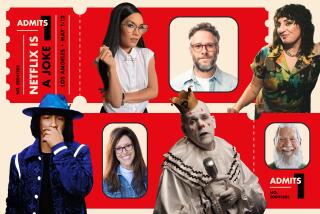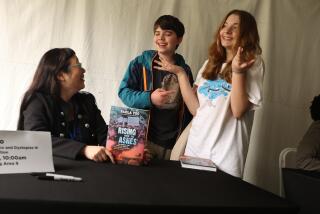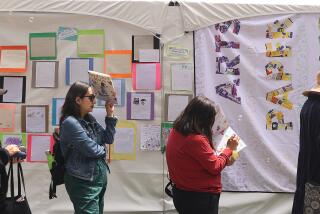Book lovers embrace the creative process — and why failure is good — at the L.A. Times Festival of Books
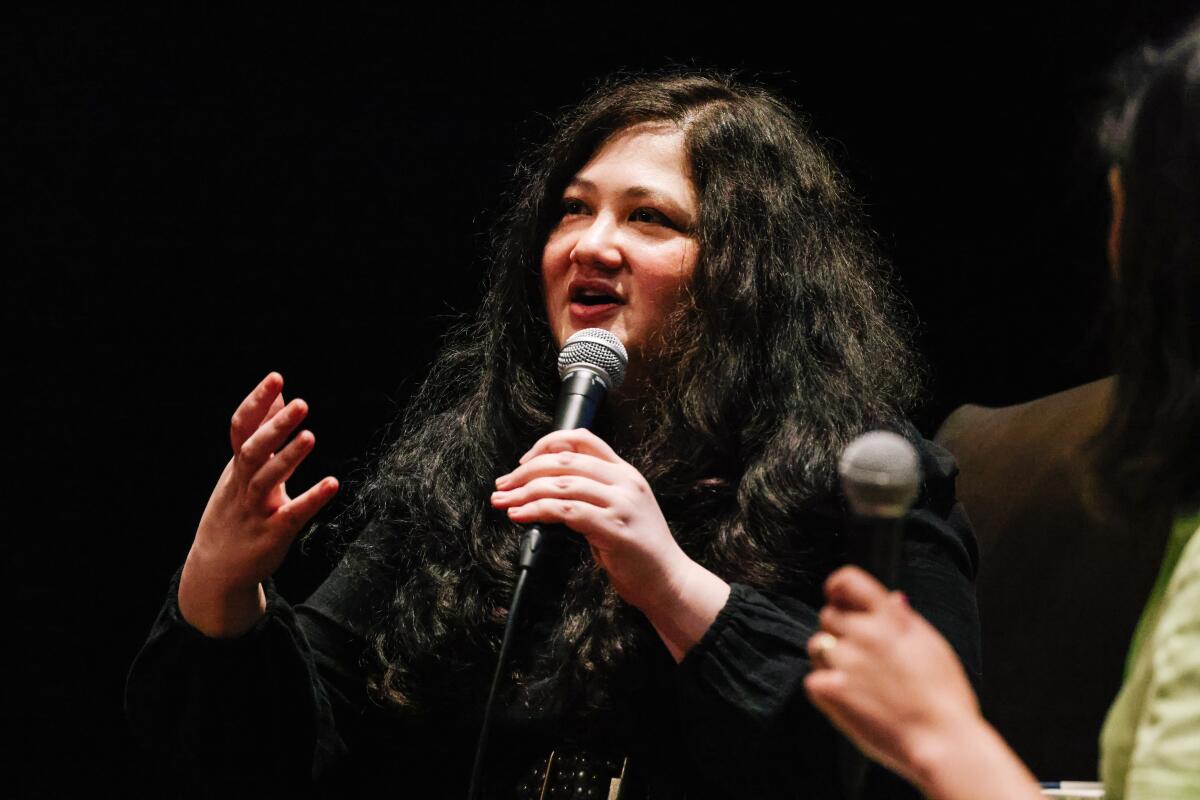
- Share via
Gabrielle Zevin likes talking about failure.
Her first novel for adults, released almost 20 years ago, did “really badly,” by her account.
“I had really never had a failure like that in my life,” Zevin said.
At the time, she was living in New York City, and it seemed as though the whole world was bearing witness to her defeat.
“I thought I would go into a store and they would be like, ‘Here is your bagel, here is your lox and sorry your novel failed so badly,’” she said. “I thought they could see it like an ash that coated me.”
There was no trace of that ash lingering on Saturday, when fans of her latest book — the Los Angeles-centric mega-bestseller “Tomorrow and Tomorrow and Tomorrow” — packed into USC’s Norris Theatre to hear her speak. The event was one of the most highly anticipated attractions at the 43rd Los Angeles Times Festival of Books, which took over the university’s campus this weekend.
More than 500 writers, experts and storytellers have come together to celebrate all things literary with throngs of book-loving fans. Scores of book tents and food trucks added to the upbeat atmosphere.
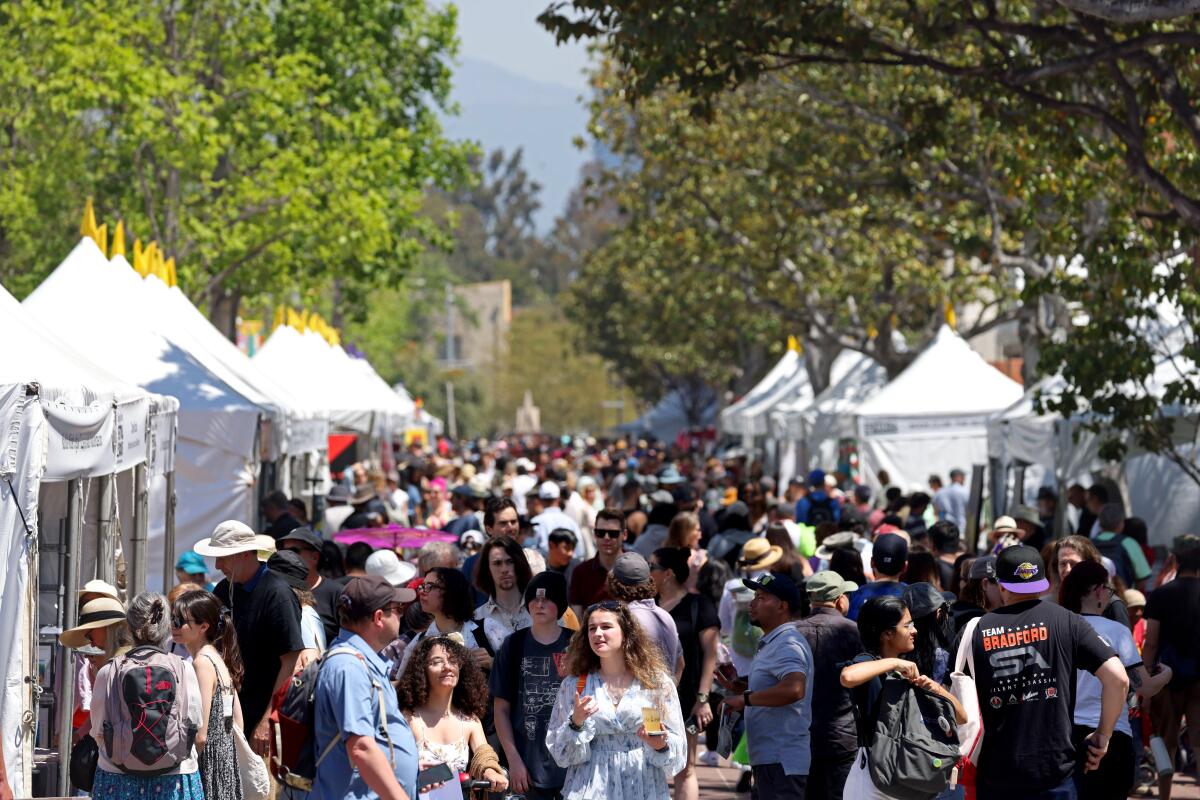
The festival bills itself as the biggest literary event in the country. Last year’s event, which was the first in-person festival after a two-year pandemic hiatus, attracted more than 155,000 people over two days.
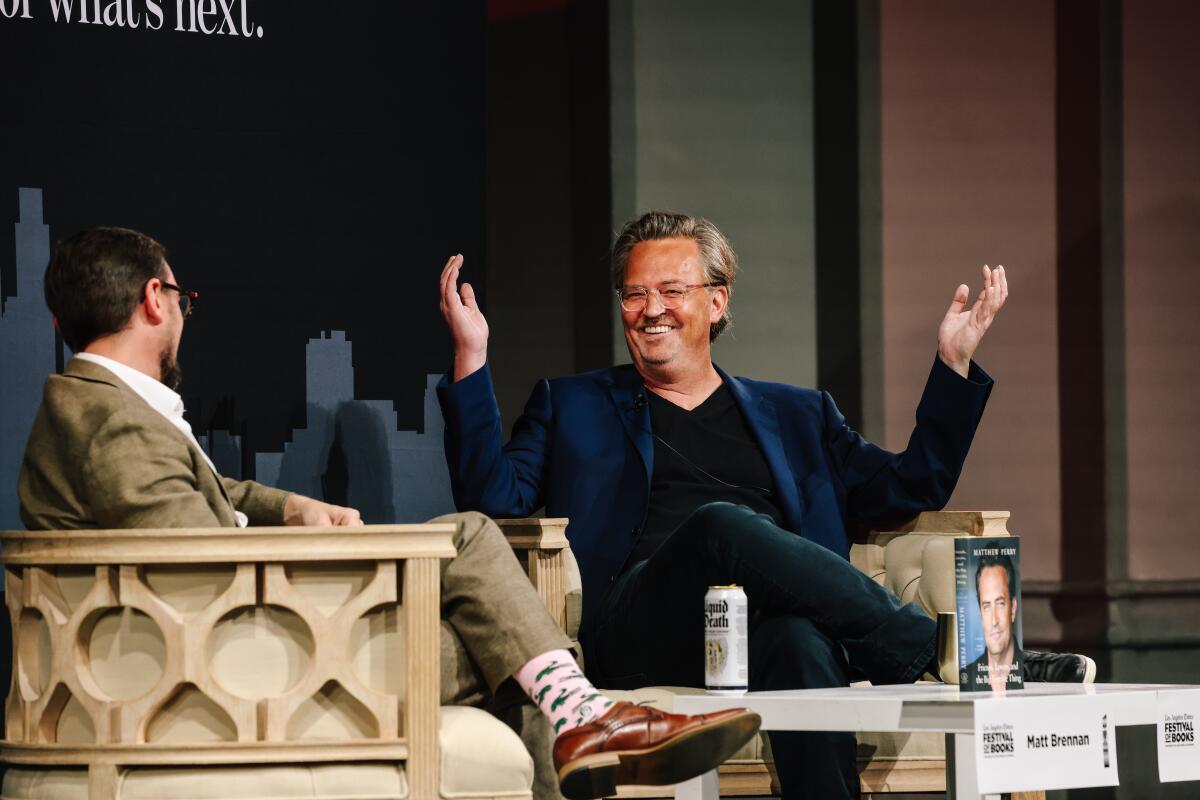
Aside from Zevin’s midafternoon talk, Day One of the festival featured events with “Friends” star Matthew Perry, “All About That Bass” singer Meghan Trainor, “Bad Feminist” author and culture critic Roxane Gay and children’s lit megastar Lois Lowry. There were also several panel discussions focused on memoir-writing as well as talks on climate change, justice and journalism.
Some of Day Two’s most-anticipated events include talks with singer and social justice activist Joan Baez and voting rights activist Stacey Abrams, and a panel on banned books.
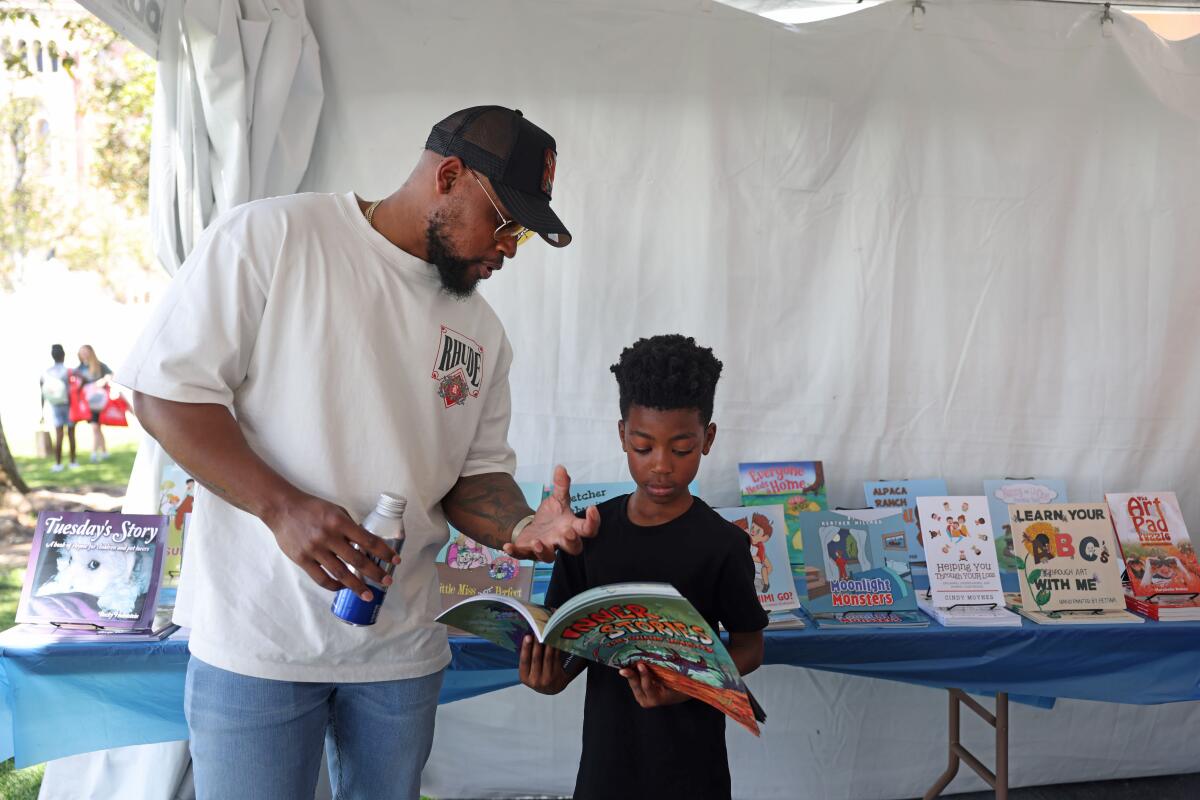
In addition to books, music, a poetry stage, a food court and more than 250 vendors and exhibitors, the festival offered an array of funky interactive stops, including crossword puzzle stations scattered about the bustling campus where passersby could stop to solve puzzles together on giant whiteboards.
Before Zevin’s event kicked off, the line to get in snaked around the side of the theater, a testament to the success of “Tomorrow, and Tomorrow, and Tomorrow,” which tells the story of a pair of adolescent video game enthusiasts who grow up to create games of their own.
“The title,” Zevin said, “is about the fact that every day you’re alive is a chance to start again and it kind of becomes a metaphor for video games.”
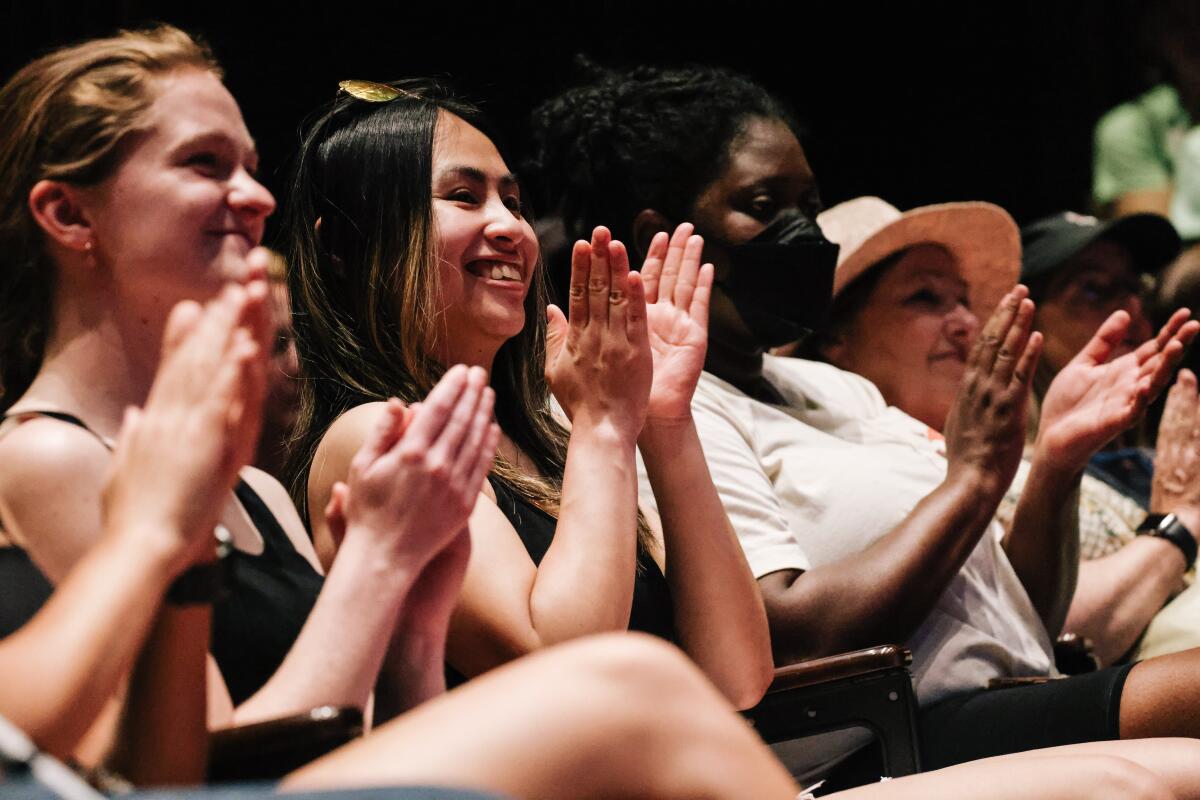
But the book is not so much about playing games, Zevin said, as it is about the process of making them — or any kind of art.
“One of the best things you can do for yourself as an artist is to get good at failing,” she quipped. “I’m quite good at it.”
For some attendees, that was the part of her talk they related to the most.
“That hit this deep, deep part of me,” said Joy Park, a 24-year-old actor who emerged from the theater beaming.
“I felt seen as an artist,” she said. “And in a weird way it encouraged me, thinking about failure as part of the creative process.”
For Kyle Kallman, the festival marked his second consecutive week of creative rejuvenation.
Last weekend, the 30-year-old went to the Coachella music festival, and he drew an unlikely comparison between the two events.
“Being in a massive field of 100,000 people was cool,” he said. “But now being in a full auditorium of book people is the same vibe.”
He noted, however, that the book festival had “less drugs and more of a morning crowd.”
Around midday, a few dozen people stopped by Mudd Hall to hear Kevin Merida, The Times’ executive editor, discuss journalism and the paper’s initiatives focused on finding new ways to cover mental health, religion and life in Los Angeles.
“It’s a magical place,” he said, shifting into an impromptu ode to the city. “Everyone can have their own experience here, there are multiple L.A.s. You can’t define it by one thing.”
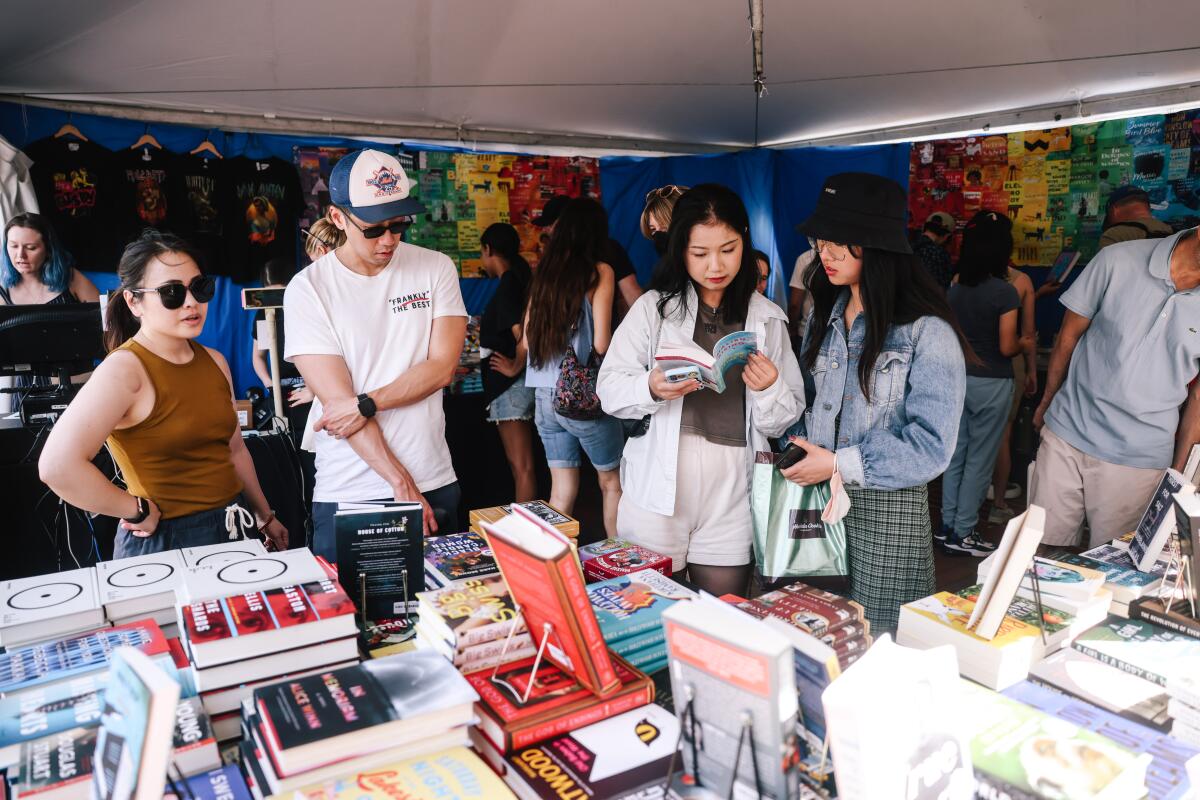
A few steps away, Andrew Tonkovich spent the day at a exhibitor table giving out copies of the Santa Monica Review. As the editor of Santa Monica College’s semiannual literary journal, he’s been to the festival almost every year since it debuted on the UCLA campus in 1996.
The poetry has been “really good this year,” he said, though he acknowledged he wouldn’t get to see much else because he’s usually too busy “proselytizing” the review.
His shirt, however, seemed perfectly suited to proselytize a book festival. It read: “Make America Read Again.”
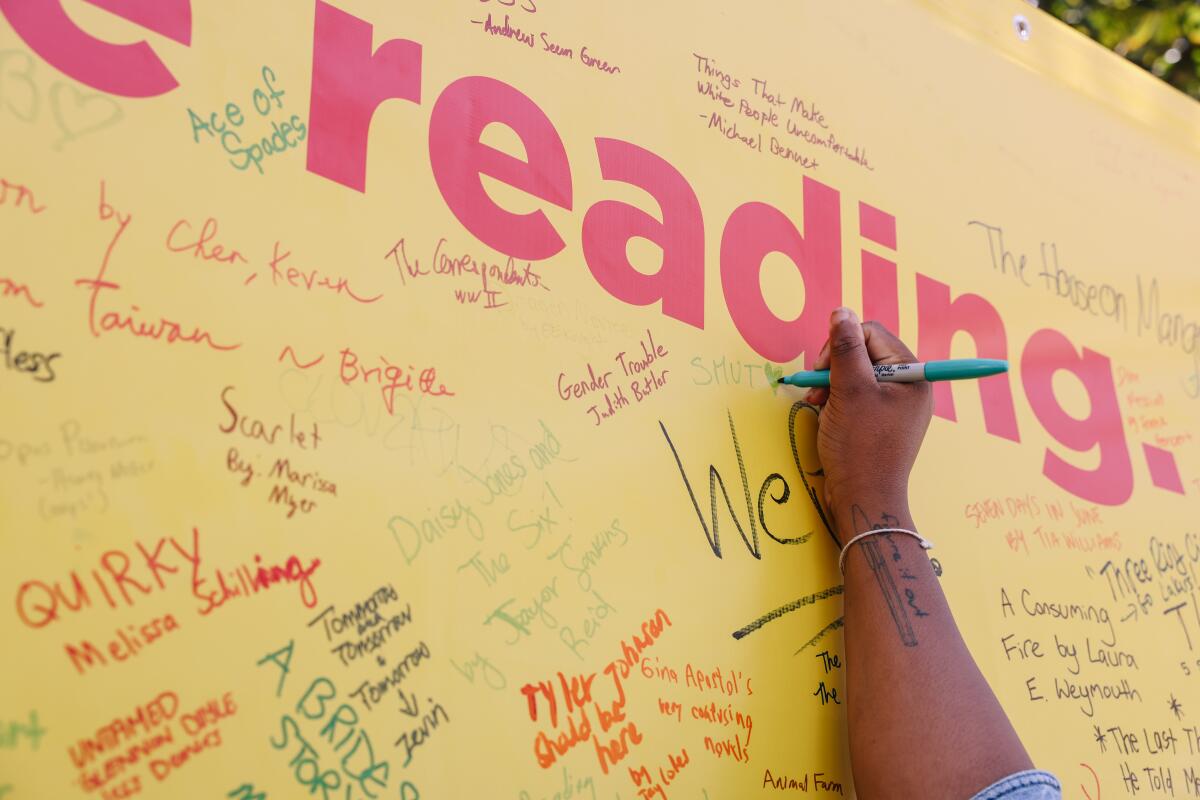
More to Read
Sign up for Essential California
The most important California stories and recommendations in your inbox every morning.
You may occasionally receive promotional content from the Los Angeles Times.
